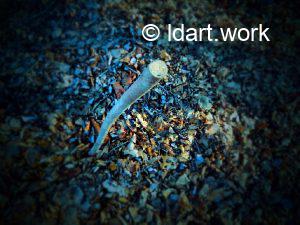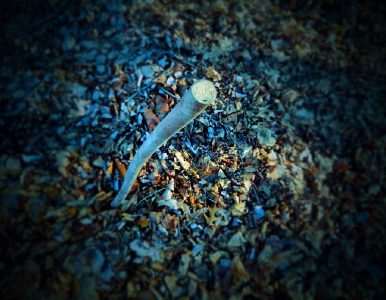
Can we avoid doubts?
A dialogue between Socrates the stick and Gottfried the bird. Socrates knows he does not know anything and this leads him to ask many questions. He then carefully examines the responses. Gottfried thinks that each being is independent but part of a logical and harmonious whole, accessible through singing.
Socrates: Master Bird, I see that you sing and are happy days after days; how can we avoid doubts as you seem to do? Do you never have questions that darken your mood?
Gottfried: ah, Mr. Stick, of course I have some, but I’m going to tell you a secret: I sing and I forget them.
Socrates: just like that? I don’t believe it. Their causes are still there.
Gottfried: I forget them, I don’t make them disappear; but by forgetting them, I often find them a solution. You know, if you force yourself to smile when nothing is going well, it clears up the clouds: they’re still there but you see them as part of a larger whole that makes sense. Well, for doubts, it’s the same thing; you have to see that they fit into a whole that the song makes you understand; this lessens their importance.
Socrates: but how can you be sure this is the right solution?
Gottfried: because it works, Mr. Stick, because it works. You have doubts when you seek the truth, but if your action makes you forget these doubts or finds an answer to them, don’t you think this action is the right one?
Socrates: it is the right one for you, but you don’t know if it’s the best.
Gottfried: that’s why doubts return regularly because I know by looking around me that my way of doing things is not the only one possible; if however it suits me, I keep it, especially because I often don’t know what else to do.
Socrates: yet, if you were to examine these doubts carefully, don’t you think you could come to a greater knowledge which would make you more sure of yourself?
Gottfried: it seems complicated when I already have the solution. When I sing, I intuitively perceive that the world is conceived as a perfect harmony where everything has its rational place. If I doubt it, I question the supreme wisdom that organized everything, and I presume I am more knowledgeable than He is.
Socrates: if, as you say, the world is rational and I have reason, don’t you think I should use it to unravel its secrets and better serve its different creatures?
Gottfried: oh, that is well thought out, I grant you. You know that you have to doubt and your doubts become tools that erase problems. I know I have to sing and my song erases worries. We cannot avoid doubts but we find different answers and utilities for them.
Socrates: yes, for me, to avoid doubts is to decide to never examine things, and therefore to never know anything about them. It’s unproductive.
Gottfried: I don’t tell you that singing makes me find the worms I need to make a living! I have to develop a strategy to get them and it’s not always easy or foolproof. However, my belief in a pre-established order makes my quest more joyful and enjoyable. And who knows, maybe the worms are happier that it’s me who eats them rather than the sad mole?
Socrates: that’s right, I know a smiling wand that warms my heart. But if singing is your cure, how do you explain that of the cicada and the ant, it is the cicada that dies of hunger?
Gottfried: the cicada is starving only in the mind of a certain Monsieur De La Fontaine. In fact, it sings and thrives. It follows its nature which is not that of the ant.
Socrates: so, what about ants and their attitude?
Gottfried: they live in a hierarchical society, they are programmed to perform a specific task; if they follow the rules, everything is fine so why would they doubt their validity? The cicada that acts otherwise disturbs them, that’s why they criticize it.
Socrates: they feel in agreement with things, I agree, but they do not seem to evolve much. To doubt is to give oneself the opportunity to improve.
Gottfried: why would they evolve if all is well? They know they will succeed, they just have to follow what their education has taught them. Doubt is the fear of being wrong, but if you have the truth, why doubt?
Socrates: to stay humble. The ant is arrogant because it thinks it is right.
Gottfried: it is undoubtedly more its character than its certainties. Each one of us, once we believe we have found the solution, we stick to it. It allows for different ways of life and different solutions. The cicada prefers more freedom, the ant more security. They are, however, both in the truth because by persevering, they see the fruits of their attitude. Like us. But Mr. Stick, please let’s stop talking about ants and cicadas; it makes me hungry and I haven’t had lunch yet.
Socrates: then I leave you, Mr. Bird; I will think about what you told me.
Gottfried: thinking ?! What’s the point ? Why not just singing?
Analysis
Doubt stops action and disturbs the mind but there are different ways of approaching doubts and this is what this dialogue puts forward.
For Gottfried, the doubt that stops action also disappears in action but he seeks less to find a solution than to detach himself from what has caused the doubt. This allows him to pass the time while waiting for the solution to come on its own. It’s a bit like sleeping because the night brings advice or going for a walk before making a decision. This highlights a characteristic of doubt which is to occupy thought and therefore prevent it from being open to new answers. By forcing oneself to do something else, things become clearer because the solution is already there but time has to let it appear.
Socrates sees doubt as the possibility of actively seeking solutions using his capacity for analysis and reasoning. It is less a question of forgetting the doubt than of using it to improve or improve one’s existence.
Both also evoke a third hypothesis, that in which strict respect for rules and customs is sufficient to guide action without the need to question the validity of this action because everything has been organized as best as possible either by a divine being, or by experience, or by a masterful authority.
Possible discussions
To refuse to doubt, is it to refuse to be?
Why does action make us forget our condition?
Finally
Want to think a little more? See Discourse of Metaphysics and Other Essays in which Leibniz develops his theory of pre-established harmony.
Want to help improve these dialogues? Write your comments and questions below.
Want to know more about the tastes of Socrates and Gottfried? Their favorite books are in the domain library.

